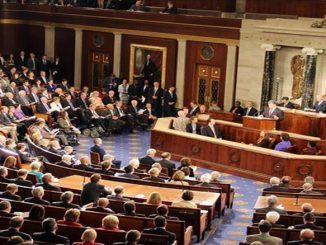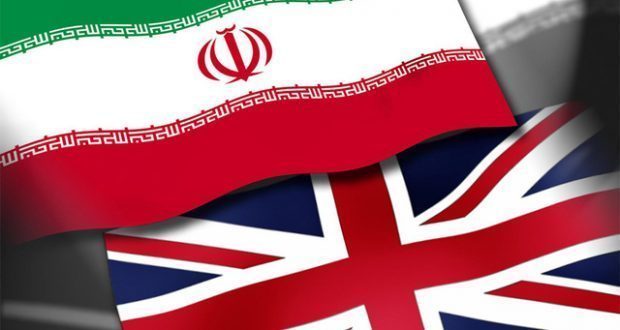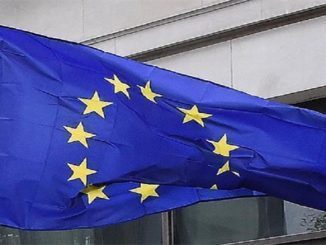
France’s Total has signed a deal with Iran to further develop its part of the world’s largest gas field, avoiding the US sanctions by financing the deal with euros, to become the first western energy company to sign a major deal with Tehran since the lifting of international sanctions earlier this year.
Total confirmed on Tuesday it had signed an agreement with National Iranian Oil Company (NIOC) for the Phase 11 development of South Pars in the Gulf, which extends into Qatari waters where it is known as the North field, for the next 20 years.
The SP11 project will progress in two stages, the first costing an estimated $2 billion, Total said. The produced gas will be fed into Iran’s gas network.
The French company will take a 50.1% stake in the venture that will develop and operate the project. China National Petroleum Corp. will take a 30% stake and the Iranian state-owned oil company will take the rest.
The remarkable part of the deal was financing it with euros by the French company, reflecting a state of trust between Iran and the European trade partners.
“This confirms we have a capacity to work with the Iranian government and that there is reciprocal trust,” Total’s Chief Executive Patrick Pouyanné said Tuesday.
Total will develop the project in compliance with national and international laws and the investment will be undertaken without bank finance, he told reporters.
Total has a long history in Iran and a record of doing business in places where U.S. sanctions limit the ability to raise financing in American dollars.
The French company has already played a key role in Iran’s energy industry, including the development of phases 2 and 3 of South Pars in the 2000s, before pulling out of the country after international sanctions were imposed in 2010.
New trade ties
The deal came as Iran ramps up efforts to attract foreign companies to develop oil-and-gas fields following the lifting of international sanctions over its nuclear program in January. American sanctions over terrorism and weapons remain in place, however, slowing the pace of investment in Iran this year.
“This is an icebreaker and we shall see more multibillion-dollar oil and gas contracts with other companies including Russians and Europeans soon,” Amir-Hossein Zamaninia, Iran’s deputy oil minister for international affairs told the Financial Times.
“The next agreement might be in a few weeks,” he added, without giving further details.
Foreign companies keen to tap into Iran’s vast oil and gas reserves have so far made little inroads into the country despite the lifting of many sanctions earlier this year following a landmark agreement on Iran’s nuclear program.
Tehran has pledged to open up its oil industry but foreign companies, including BP and Italy’s Eni, recently said they still have little information about Iranian oil fields and contract terms, hindering investment decisions.
However, Total move of financing the deal in euros may attract more suspicious companies now.
Bijan Namdar Zanganeh, Iran’s oil minister, said at the signing ceremony that he was “thankful to Total for always being a pioneer and coming back to Iran at a difficult time again”.
He added: “I hope this will allay concerns of other companies so that they can enter Iran’s market quickly.”
Internal tension after signing the deal
Despite the huge revenues, the deal will give to Iran, the hardliners refused it and tension was raised in the country.
The agreement was a big victory for Hassan Rouhani, Iran’s centrist president, who has been questioned by critics at home about the limited economic dividends so far from last year’s agreement with major powers to curb Tehran’s nuclear program.
But the Iranian oil ministry, according to some officials, has been fighting hard to push the guards’ affiliated companies away from big projects including South Pars.
The contract with the Total-led consortium will be consistent with the contentious Iran Petroleum Contract, which serves as a blueprint for deals with overseas energy companies but has sparked a huge row in Iran.
Hardliners believe it is offering overly generous terms to overseas energy companies that can exploit Iran’s natural resources.
During years of sanctions that kept away many foreign companies, the Islamic Revolutionary Guard Corps stepped into the void, building a network of companies that came to dominate Iranian industries from energy to telecommunications.
The behind-the-scenes struggle mirrors a broader debate over Iran’s future. Moderates backing President Rouhani seek a degree of social and political liberalization, as well as better relations with Europe and the U.S.
The Revolutionary Guards should “be limited to those areas that the private sector is incapable of or uninterested in,” a spokesman for the Rouhani government has previously said.
“The government believes that the private sector should gain the opportunity to present its capability. The government itself shouldn’t compete with it. Other sectors like [the IRGC] should not compete with it.”
On the other side, the Revolutionary Guards and their conservative supporters remain distrustful of the West, professing no need for foreign companies and emphasizing security and social conservatism over international engagement. They hew to what Supreme Leader Ayatollah Ali Khamenei calls a “resistance economy” of self-reliance.



